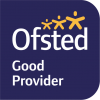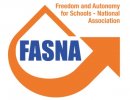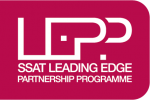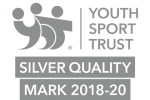Arden SEND Information Report
Arden's SEN Information Report and Academy Offer
Arden Academy recognises and values the individuality of all pupils. It is committed to giving all students every opportunity to achieve the highest standards. This includes all pupils regardless of gender, ethnicity, sexual orientation, physical status and ability. We strive to create a sense of community and belonging for all our pupils. We have an inclusive ethos with high expectations and suitable targets, a broad and balanced curriculum for all children and systems for early identification of barriers to learning and participation.
At Arden, we welcome everybody from our local community. We believe that our own school community should provide every child with the opportunity to achieve their full potential. When considering Arden as a choice for your child then please be reassured that we will make reasonable adjustments for students with special educational needs and disability.
Every student at Arden has the opportunity to follow all National Curriculum subjects as well as following an appropriate GCSE/GCE or Vocational curriculum pathway.
We are committed to narrowing the attainment gap between SEND and non-SEND students. It is our policy to not withdraw students from lessons wherever possible. We expect all students, regardless of their ability to undertake a full and broad curriculum.
We have good attendance at Arden as students want to come to school to experience our high quality learning environment. This regular attendance puts us firmly amongst the top 20% of schools nationally.
Provision for Special Educational Needs and / or disability at Arden
At Arden we promote an inclusive atmosphere, all students have access to a broad and balanced curriculum that is delivered through high quality teaching and learning. In order to support our students with special educational needs we focus on quality first teaching with a particular emphasis on personalised learning and effective differentiation. This helps to ensure that students can access the curriculum whilst predominantly being taught in mainstream mixed ability classes. Teaching staff are supported by a highly skilled Learning Support team who work across the key stages providing in class support for students who require it the most. At Arden we work with students who have specific learning difficulties such as dyslexia as well as students with sensory difficulties, physical conditions, visual and hearing impairments.
There are four types of Special Educational Needs and Disabilities as defined by the Department of Education:
- Communication and interaction
- Cognition and learning
- Social, mental and emotional health
- Sensory or physical
If a student has special educational needs and / or a disability then their needs will fit into one or more of these categories.
Identifying Students who may have Special Educational Needs and / or Disability
Students who have been identified as having special educational needs during their primary phase of education are transferred at the appropriate level of support e.g. SEN support. As part of our transition work we attend review meetings and meet with primary SENCos in order to ensure accurate information is passed on to our teaching staff. We also review SATs data.
Arden Academy follows the approach laid out in the Special Educational Needs Code of Practice 2014 assess-plan-do-review. Once students arrive at Arden we conduct baseline assessments in reading, spelling and maths to provide up-to-date information about students’ attainment, this information is shared with teaching and support staff in order to ensure the delivery of Quality First Teaching. Student progress is regularly monitored and reviewed to check progress.
If a student is not making adequate progress, then wave one and wave two approaches are expected to narrow the gap within 3 academic terms. The process identified above is a continual process. In the event that existing interventions are not working we would identify this in the review, as well as in consultation with parents, and then refer to a wave two or three intervention to further support the pupil.
Where progress is still not being made, and in further consultation with parents and appropriate external agencies involved, we would consider whether an EHC needs assessment may be necessary. We would use the LA guidance to make any such decisions. If the child’s needs are considered to be severe and complex, an EHC plan of special educational needs and / or disability may be issued by the LEA.
Supporting students with Special Educational Needs and / or disability
The Learning Support department works closely with students, parents/carers and teachers to ensure that students with special educational needs have every possible opportunity to reach their potential. Teaching staff have an effective training programme which is regularly reviewed to support the delivery of quality first teaching and effective differentiation as well as training sessions on the difficulties that some of our students face in their learning. The learning support department works effectively with the pastoral team as well as curriculum staff to gain a whole picture of the child and then, in discussion with parents, work on the next steps needed for individual children. There is not a one size fits all approach to supporting children with special educational needs and there are opportunities for students to take part in additional intervention and mentoring programmes during registration time. The progress of children with Special Educational Needs and / or disability is closely monitored and where there are concerns that the gap may be widening the team may seek additional support and intervention from an appropriate external specialist.
Making progress
All children with Special Educational Needs and/or disability will be assessed the same way as their peers, which is explained in our Assessment policy. We set individual ‘Pathway Targets’ for each child, to promote progress, based on their end of Key Stage 2 results.
To make it easier to understand and so there is not a significant change when moving from KS3 to KS4 the 1-9 Pathway mirrors the 1-9 GCSE grades.
In core subjects your child's progress is then measured using tests and assessments that take place in class. The scores from these assessments are then used to determine a ‘Working at’ Pathway on a 1-9 scale.
In the skills based subjects, your child is assessed continually in class. Their teacher will look at the skills they demonstrate, the practical work they produce, and the projects they complete. The evidence used will vary considerably from subject to subject. There are three levels for each skill: developing, secured and mastered. Most children will start the year developing, moving to secured and some may progress to mastering some skills.
Most children will return to developing a new set of skills at the start of each academic year.
If parents and carers do have any queries about the progress of their child throughout the academic year, they are more welcome to contact the school either by email or telephone to speak to a member of the academic or pastoral team. We evaluate our support to promote progress through a variety of methods such as learning walks, book trawls, pupil voice groups, parent voice groups and parent's evening questionnaires. Progress against these targets and current levels of attainment and effort are reported to parents through three Progress Check reports and an annual parent's consultation meeting.
Checking Progress
All progress of students with special educational needs is monitored by the learning support department as well as the pastoral team. As a result of this, any concerns will be raised with parents and the next steps forward will be decided upon together.
If a student holds an Educational, Health and Care Plan then an annual review will be held during each academic year. The views of parents, students and teaching staff are collated and shared two weeks prior to the meeting. The subsequent discussions will reflect the academic progress of the student, attendance and punctuality, behaviour, emotional well-being and preparations for adulthood. The timing of these meetings is determined by key transitional points in the year.
Effective Teaching
Arden Academy supports the view, laid out in the SEND Code of Practice 2014, that quality first teaching, differentiated for individual pupils, is the first step in responding to pupils who have or may have SEND. Additional intervention and support cannot compensate for a lack of good quality teaching’.
Our teachers have the highest expectations for your child. All teaching is based on building on what your child already knows, can do and can understand. The teachers will put in place different ways of teaching so that your child is fully involved in learning in their class. The teacher will also put in place specific strategies (which may be suggested by the SENCO, Director of Learning Support or specialists from outside agencies)
All students at Arden have access to a broad and balanced curriculum taught by teaching staff who are committed to maximising opportunities for all students and ensuring that they make progress. All teaching is based on consolidating knowledge, ensuring understanding and providing opportunities for application. Teaching staff at Arden use a range of assessment strategies to ensure gaps in understanding are identified, ensure learning is reviewed as well as progress being recorded and recognised.
The role of school governors
The SENCO reports to the governors annually to inform them about the progress of students with SEND; this report does not refer to individual students and confidentiality is maintained at all times. One of the governors is responsible for SEND and meets with SENCO. This 'SEND link governor' also reports to the governing committees, to keep all the governors informed.
Our SEN link Governor is Mrs Sarah Bloomer and she can be contacted through the Head Teacher’s PA.
Adapting the curriculum and learning environment for students with SEND and/or Disability
Arden is proud to welcome every disabled pupil who has been offered a place at our Academy via the Solihull Education Authority admissions board.
The school works hard to ensure that every disabled young person joining the school has the same great opportunities and positive experiences as every other member of the student body, subject of course to any health and safety considerations.
Upon entry to the school, it is normally standard procedure for the parents of a disabled young person to meet with the appropriate member of pastoral staff and the Director of Learning Support. This consultation is aimed at assessing the correct provisions required for that pupil's education.
It must be noted that Arden is a large school that is spread across a wide campus. Your child will be expected to access in the region of 15 different learning environments each week. Whilst it is possible for us to consider timetabling many of these lessons on a particular floor, there are certain facilities that are not accessible on lower levels; this will mean that your child will have to negotiate stairs as part of their normal working conditions. In addition to this there are many specialist classrooms across the school that will result in them having to walk relatively long distances between lessons. The specialist nature of certain subjects means that the necessity to walk large distances between lessons is unavoidable. Three of our buildings have lift access however two of our main teaching blocks do not.
However, the Academy is constantly upgrading its facilities. All recent building work has been carried out with the requirement for full disabled access and we are committed to improving disabled access in the future.
Additional support for learning that is available to students with SEND and/or Disability
Available Provision
Transition (Primary School, Years 5 and 6)
- Pastoral visits to primary schools
- SENCO / Director of Learning Support attends review meetings and visits primary schools and gathers SEND information
- Ongoing liaison work between subject departments and primary schools
- New Intake Evening
- Induction Day in the Y6 Summer Term
- Open Evening
- Year 6 Additional Transition Day
- DATA Exchange
KS3 (Years 7-9)
Cognition and Learning
- Assessment & Reporting
- Student Information to staff
- Targeted homework intervention
- ICT software available during clubs
- Learning Mentors
- Learning Styles Assessment
- Writing Frames/ Word Banks
- Mixed/ Set Ability
- Advice from external specialists
Communication and Interaction
- Advice from the Speech and Language Service
- Visual Timetable, if appropriate
- Increased visual aids in class
- Structure of school and class routines
- Environmental Clues (Signs etc.)
- Positive Language Environment
- Peer-mentoring
Emotional, Social and Mental Health
- Pupil Pass
- Homework Club
- Pastoral Support
- Time-Out card
- Form Tutor Support
- External Counselling
- Peer mentoring
- Transition Support
- Form Tutor Mentoring
- Pastoral System
Sensory and/or Physical Medical Conditions
- Disabled toilets
- Medical Room
- Medical Support
- Homework Club
- Handrails
- Lifts in newer buildings
The following additional provision is available in KS4 (Years 10 and 11):
- Guided Options Choices
- Revision Classes
- KS4 Option Choices
- Work Experience
- Exam Access Arrangements
The school offers an individual response to the wide range of needs from monitoring to more intensive support, which may be for the short, medium, or long term to enable access to an inclusive mainstream placement. Staff are aware of impairment implications.
The school is quite a large, extensive site with many old buildings, therefore lifts are not found in many of the main teaching blocks.
Liaison with Parents
- SENCo / Director of learning Support by request or at scheduled review meetings
- Subject teachers by request or at scheduled Parents Evenings (Options Evening Year 9)
- Form Tutor
- Head of Year
- Pastoral Managers
- Education Welfare Officer
- Other external agencies - via referral
- Solihull SEND (Special Educational Needs and Disability) Information, Advice and Support Service for Parents
Partner Agencies
- Solihull SISS Autism Support Service
- Solihull SISS HI, VI and PI Service
- Engage
- Children Mental Health Services (Solar and Forward Thinking Birmingham)
- Solihull SEND (Special Educational Needs and Disability) Information, Advice and Support Service for Parents
- Service for children not currently accessing education
- School Nurse
- Dare to Dream
Continuing Professional Development
- Whole School INSET from internal / external source
- Targeted departmental / individual training
- Knowledge disseminated
- Inclusive practice self-evaluated
- School Development Plan
- Rolling programme of training
Co-Curricular activities that are available for students with SEND and/or Disability
Arden maintains a broad range of exciting and enriching extra-curricular activities that are ideal for both talented pupils wishing to maximise their development and for youngsters who simply wish to take part in an activity they enjoy.
- Co-Curricular Sports
- Competitions, both regional and national
- School Club Links
- Charity Work
- Music
- Drama
- School Visits
- Enrichment activities in a range of subject areas
The timetable for these activities is distributed at the beginning of each term and can also be found detailed on our website.
Supporting students' emotional and social development
It is crucial to remember that we have a shared goal of ensuring that your child is happy and successful, in order to do this it is essential that we apply the same encouragement, rewards and sanctions and provide a consistent and well communicated level of support.
Keeping in close contact is absolutely crucial to ensuring a happy and successful education. If any problems occur at school, at home or both, regular phone contact is encouraged, particularly in difficult circumstances. Nipping negative signs, however small, in the bud is the one recognisable successful way to avoid problems growing.
Pupils can only reach their full potential if they feel secure in their learning environment. We believe that all children have the right to education free of unwanted fears generated by bullying. We abhor bullying because its ill effects can last a person's whole lifetime and it is never justified. Further information can be found in our policy on 'Anti-bullying'.
How does Arden ensure effective training of staff?
Arden has a development plan that includes identified training needs for all staff to improve the teaching and learning of students including those with SEND and/or Disability. This may include whole school training on SEND and/or Disability issues or to support identified groups of learners in school, such as autism, dyslexia, etc. The purpose of whole staff training is to share knowledge, strategies, and experience, and ensure consistency of our school's approach for students with a SEND and/or Disability. Teachers and support staff also attend training courses run by outside agencies that are relevant to the needs of specific students in their class. The SENCO also works closely with specialists from external support services who may provide advice or direct support as appropriate.
If you would like to hear about current or past training undertaken by school staff, please speak to the SENCO / Director of Learning Support.
Equipment and facilities to support students with SEND and/or Disability
Our academy has a duty to provide auxiliary aids and equipment in accordance with the needs assessed for students with SEND and/or Disability. This will be completed in consultation with external specialist services.
Please refer to Solihull Local Authority's Local Offer for more information.
Please refer to Solihull Local Authority’s Local Offer for more information. The link to the page is https://www.solihull.gov.uk/children-and-family-support/localoffer
Consulting with parents and carers of students with SEND and/or Disability about the education of their son or daughter
Information about the provision in individual subjects can be discussed with subject teachers or academic leaders. There is an annual opportunity for this at parents' evening, but teachers can meet with parents/carers at any point in the school year to discuss students' progress by appointment.
In the case of individual or small group interventions, the Director of Learning Support, Assistant Director of Learning Support, Lead LSA will write to parents/carers explaining the aims of the intervention. Letters, phone-calls or emails will be used to keep parents/carers updated on their child's progress and discuss support in more detail, if required.
Consulting with students with SEND and/or Disability about their education
Students' views are highly valued at the school and their opinions are sought on many areas of school life, as well as their own learning. We use a variety of methods for seeking student views:
- The school has an active student council, where students are elected each year to represent their peers in their year group. The student council consults on whole school plans, leads on charity activities at school and is able to express student views to senior leaders throughout the school year.
- There is an annual pupil questionnaire where we actively seek the viewpoints of students on a range of topics. The results of this questionnaire are used by the Senior Leadership Team to develop the whole school improvement plan.
- If a student takes part in an intervention programme, then they will contribute their views to the half-termly review of progress.
- If your child has an EHCP or Statement of SEND, their views will be sought before any review meetings
External Agencies and Support
We work with a number of external agencies, which support both the Academy and your family. They include:
- Solihull SISS HI, VI and PI Service
- SISS ASD/SALT
- Malachi
- Children’s Mental Health Services (SOLAR)
- Solihull SENDIAS (Special Educational Needs and Disability Information Advice and Support Services for Parents
- ESCOSS
- E.W.O. (Educational Welfare Officer)
- School Nurse
If you have any queries about these external agencies, please do not hesitate to contact the department. However, please note that many of these external agencies are bought in on a year to year basis, and may be subject to change to reflect the majority of needs in the Academy.
Transition - Key Stage 2 to 3: Year 6 to Year 7
In the Summer Term of Year 6, our Director of Learning Support and Lead Learning Support Assistant will visit primary schools to collect all appropriate information from junior school SENCO's and class teachers.
Our in depth transition process ensures that we have a comprehensive overview of our children's needs prior to them starting in Year 7. On the first day of term in September, all of our staff are issued with Learning support notes to identify and inform them of children in their classes with Learning difficulties or differences.
We liaise with External services to ensure that all notes are passed on to us.
Primary SENCOs contact us or invite us to join review meetings near the end of Year 6.
Some parents may come in to meet with the Director of Learning Support before their child arrives in September in the Summer Term of Year 6. This can be arranged by contacting the SEN department office.
Transition - Key Stage 3 to 4: Year 9 to Year 10
For KS4, students choose from a range of GCSE and BTEC courses, which help to prepare them for the next steps in their education, be that college, apprenticeships or work. Students and parents/carers are offered advice and careers guidance at the appropriate time to help make these important decisions. All students with have a planning meeting to support the transition process, for pupils with SEND we carefully select staff who have the best knowledge and relationships with that student to conduct their planning meeting.
Transition - Key Stage 4 to 5: Year 11 to Year 12
The school arranges visits to open days and further education fairs for all students. Support with finding and applying for apprenticeships is also available.
Students are encouraged to consider attending university in the future and the school works with higher education establishments to provide experiences for students to inspire the ambition to pursue this route.
All students in Year 11 are provided with 1-1 careers advice to help them plan possible routes for training or education.
Students with an EHCP who are moving on to further education are supported by Arden's Career Advisor. A representative will attend all Annual Reviews from Year 9 onwards to help plan and organise support for the move to college or vocational training.
All information relating to a student's exam dispensations and required differentiation is passed on to college or training provider during the summer term of Year 11, when college places have been confirmed.
Transition - When a student joins mid-year
All students admitted to the school after the start of the academic year are screened on entry, to identify any areas of need and to provide information to staff about the student's learning
A student 'buddy' is chosen to support the new student for the first few days of being at Arden. The buddy takes the new student to lessons, introduces them to other students, answers questions and offers advice.
Contact is always made with the previous school to ensure the transfer of information and the child's school file.
Transition - moving to another school
Contact is always made with the new school to ensure the transfer of information and the child's school file.
Contacting Us
Our aim is to help all learners to become independent in their education and provide them with the life skills and strategies to leave school to confidently face the world of work and/or further education. If you would like to find out any more information please contact our SEND department and ask to speak to one of the following team members.
- Special Educational Needs Coordinator (SENCO), Mr Anwar.
If you are unhappy
We endeavour to do our best for all children but if there are any concerns we encourage those concerned to approach the SENCO/Director of Learning Support or Year Head in the first instance and a response will be made as soon as possible.
Please read our complaints policy for further information.
Additional support for parents
We support the use of SENDIAS (Special Education Needs and Disability) Information, Advice and Support Service for Parents. Additional service information will be sent home, as and when we become aware of them.
Here is a link to their website: https://www.family-action.org.uk/what-we-do/children-families/send/solihullsendias/
You can email them with this address: solihullsendias@family-action.org.uk
There is further information available in Solihull Local Authority’s Local Offer. The link to this page is: https://www.solihull.gov.uk/children-and-family-support/localoffer
Finding out more information
The Solihull Local Offer website has information about the services that are available.
Our policies
A range of policies underpin our SEND offer; in particular, these are:
- Accessibility Policy
- Admissions Policy
- Anti-bullying Policy
- Attendance Policy
- Discipline and Student Behaviour Policy
- Drugs Policy
- Health and Safety Policy
- Safeguarding Children Policy
- Single Equality Policy
- Special Educational Needs Policy
- Teaching and Learning Policy
To view these policies please go to our Policies section
















